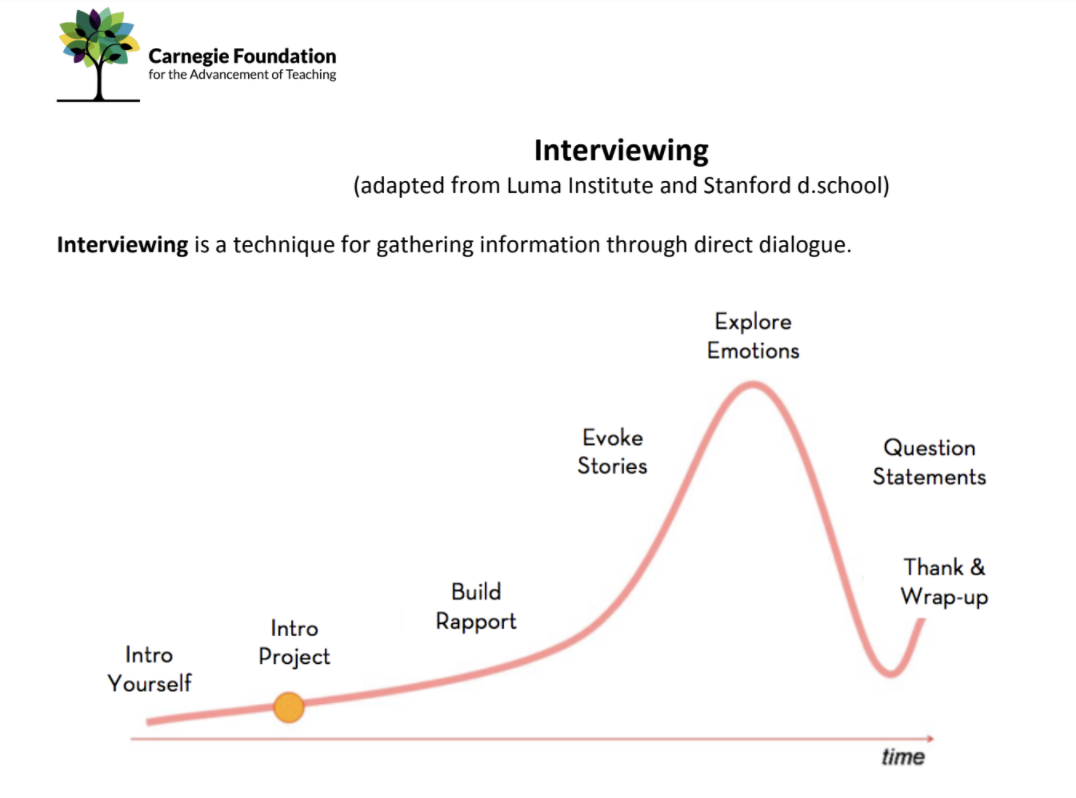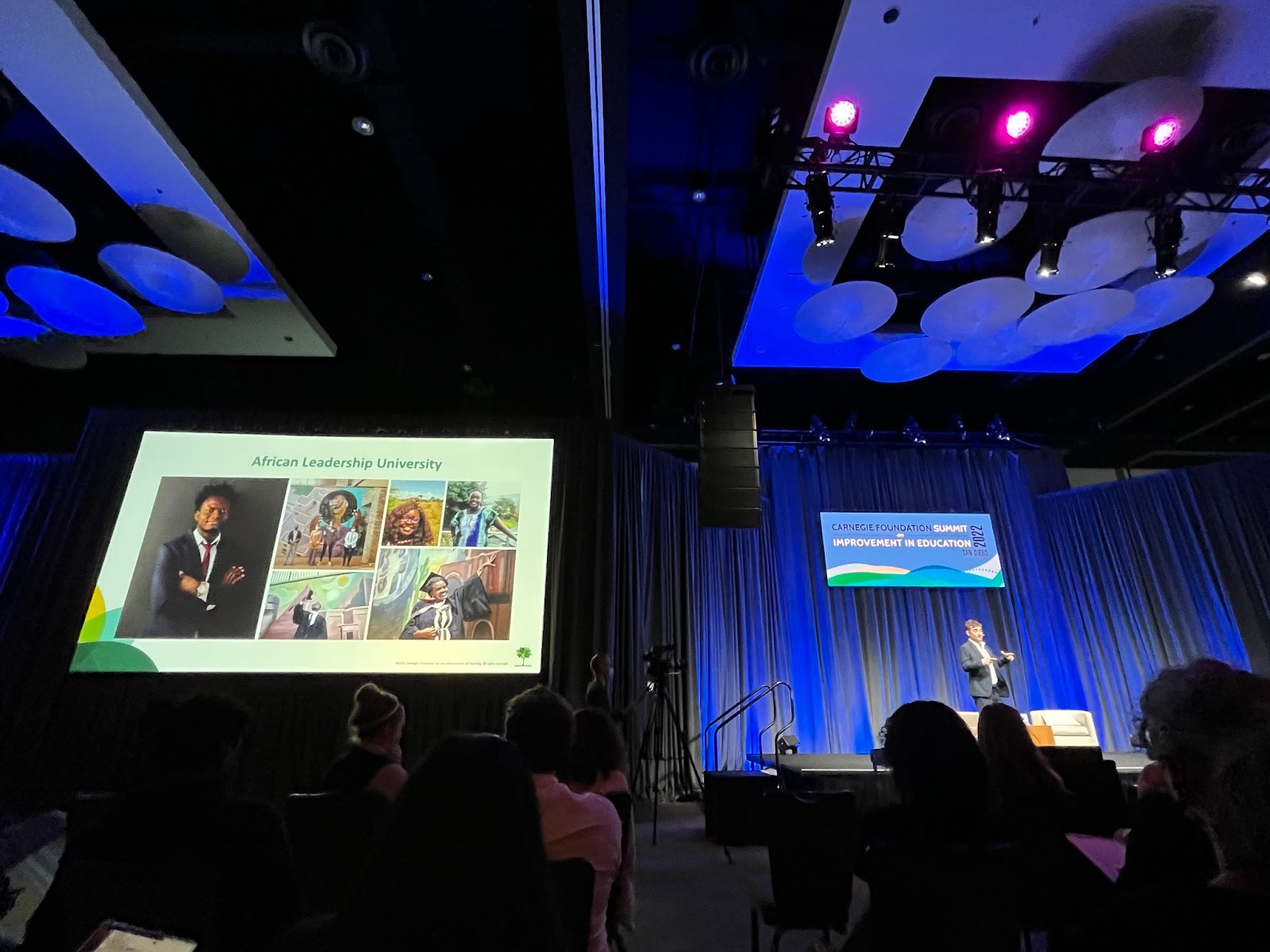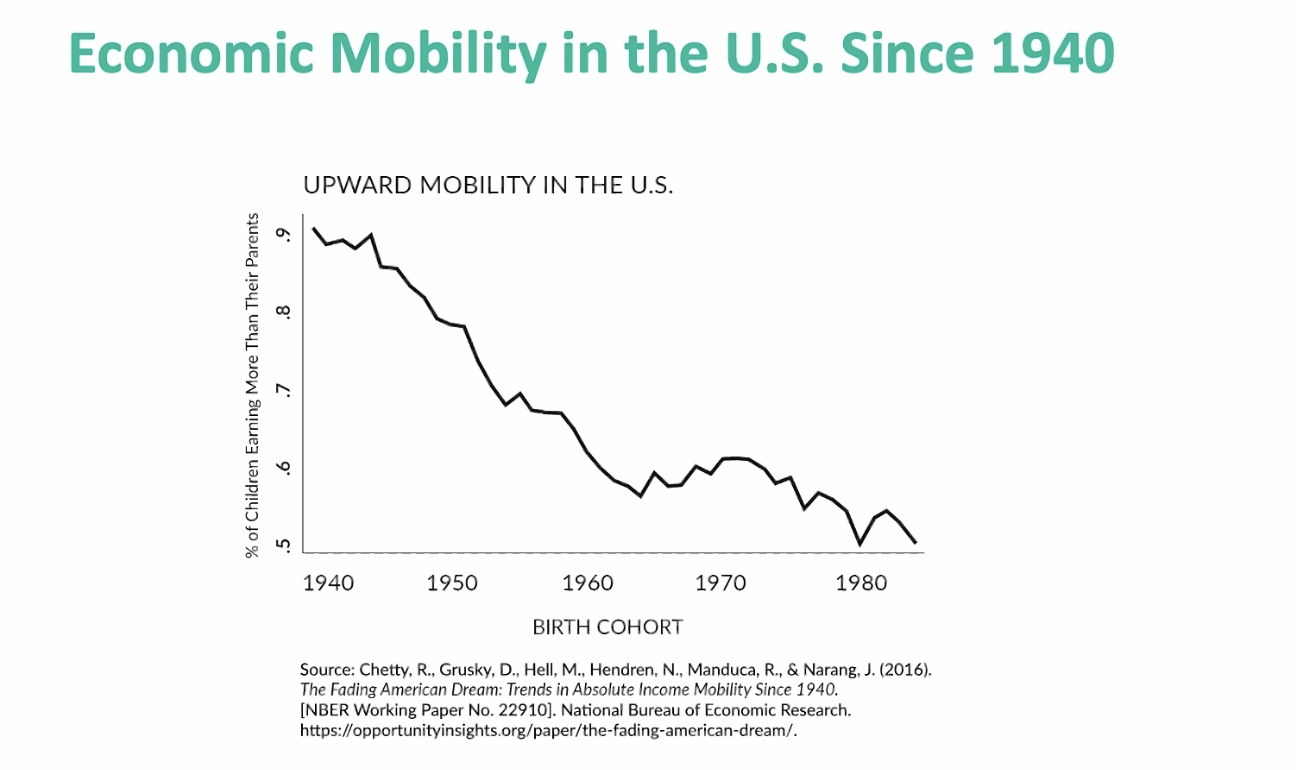I recently was fortunate to have the chance to visit San Diego for the Carnegie Foundation Summit, where I expected to engage with a group of folks dedicated to bringing a scientific approach to improving educational outcomes. I got more than I had bargained for.
To start, the Carnegie Foundation Summit does indeed shine in giving participants a chance to get their hands dirty and practice new improvement skills with colleagues from a wide range of settings, backgrounds, and roles, through collaboration on real-life challenges. My “pre-conference course” was titled Improvement Science Basics (focused on protocols and processes for aligning around a shared understanding of a problem, and collaborating to identify strategies to tackle it); others included “Using Data for Improvement” and “Developing and Sustaining a Culture of Improvement.”
But the conference went well beyond the practical nuances of improvement science, providing inspiring ideas to help remind participants both that change is possible, and that there continue to be new pathways to explore.
From my educational pre-conference course, to the thought-provoking sessions, to the inspiring keynotes, the event struck an impressive balance. While there were too many takeaways and too much great work to fully capture in a blog post, I wanted to at least highlight a few of the key ideas that I find still rolling around my head at the time of this publication.
New Ways of Thinking, and New Tools for Understanding
Particularly memorable to me, of the sessions I was able to attend, were “Empathy Interviews: How to Do Them and Why They Are Important”, and “Transformational Systems Change and Power Dynamics.”
The empathy interviews session focused on practical and actionable tips for leading meaningful conversations about the experiences and understandings of others whose experiences might provide new insights on a problem. The leaders of the session gave participants opportunities to partner up to practice skills such as using questioning strategies that foster vulnerability and authentic reflections, focusing on asking for stories and reflections on feelings, and avoiding leading questions. “Four empathy interviews will give you more than you know what to do with,” said Kari Nelsestuen, one of the leaders of the session and Co-Founder of Community Design Partners.

In “Transformational Systems Change and Power Dynamics,” session leaders focused on reframing the concept of power to create new opportunities and new capacities within a system. A system here is defined as “an interdependent set of interactions among people, the tools and materials they have at their disposal, and the processes through which they all join together to accomplish work.”
With this in mind, session leaders argued that the key to systems change is “thinking about power in terms of relationship dynamics.” As the session went on to explore structural (policies, practices), relational (connections and power dynamics), and transformational (mindsets) approaches to systems change (see The Waters of Systems Change for more), it was hard not to connect this idea with the empathy interview process, and see many ways that these concepts might intersect.
Inspiration to Bring Home
Dr. Tim Knowles, President of the Carnegie Foundation, opened his keynote with an important reminder of the racial inequities within our society, and went on to announce new initiatives aimed at making progress in addressing these inequities through post-secondary innovation and, notably, an effort to free our high school system from the Carnegie Unit.

“People learn through immersive experience, by solving real problems, from peers and mentors and experts,” said Knowles. The Carnegie Unit, he argued, is “central to how the vast majority of high schools are organized… It shapes what is and what is not assessed… It’s foundational to what goes on a transcript.”

“The conflation of time and learning is problematic,” said Knowles. Reminding participants of the downward trend in economic mobility that our nation has seen for decades, he said “[The Carnegie Unit] has outlived its useful shelf life.”
Russlynn Ali, CEO of XQ, further explored this idea in conversation with Dr. Knowles. “If we’re going to rethink the system, and design a new architecture, we need new building blocks,” she said. “This starts with identifying the knowledge, skills, and attributes that young people need to be prepared for life after high school… And to get to scale, we need a new framework to deliver, capture, and certify learning.” Unpacking this idea in the context of the XQ Learner Outcomes, she went on to announce that XQ is working on a new project called the Student Performance Framework, a system for “defining student success not just by test scores or Carnegie Units, but by the achievement of meaningful outcomes across academic content, cognitive skills, and social-emotional competencies.”
The next day, Dr. Chris Emdin, Chair of Curriculum Theory and Professor of Education at the University of Southern California, made an impassioned and inspiring case in a keynote unlike any other I’ve seen. Advocating for the idea that the best way to promote deeper student learning is through meaningful and authentic connection between students and adults, he said, “If you teach–you are performing… I don’t care what you do with your assessment, your structure–whatever. What do your eyebrows say when you raise them in the direction of a young person? How do you glide? How do they glide with you?”
He later continued, “I’m saying that half the battle with teaching and learning as we pursue improvement of practices should be focused on the ways in which we engage with young folks… we must start viewing young people as works of art…” and went on to argue that “you must teach to the heart and soul, and uncover the heart and soul, before you touch the mind… See the art in yourself, in order to help young people see the art in themselves.”
Dr. Valerie Kinloch, Dean of the University of Pittsburgh School of Education, in a thought-provoking session focused on equity, shared some similar sentiments, saying, “Think of freedom as the ability to be who we are in relation to other human beings.”
Moving Forward
I approached the conference as a prospective new member of a school of thought, and was not disappointed. From the Carnegie Foundation’s core foundation of improvement science to the community of inspiring educators doing their best to learn how to learn, I left with both a brain full of ideas, and a heart with a full tank of gas. I regret not having the space here to share about the important ideas shared by speakers such as Secretary Miguel Cardona, leaders from District of Columbia Public Schools, and Father Gregory Boyle.
If you’re interested in going deeper into any of the ideas explored in this blog post, I wouldn’t hesitate to recommend putting the Carnegie Foundation Summit on your calendar for next year.
Stay connected with us on social media platform for instant update click here to join our Twitter, & Facebook
We are now on Telegram. Click here to join our channel (@TechiUpdate) and stay updated with the latest Technology headlines.
For all the latest Education News Click Here
For the latest news and updates, follow us on Google News.
